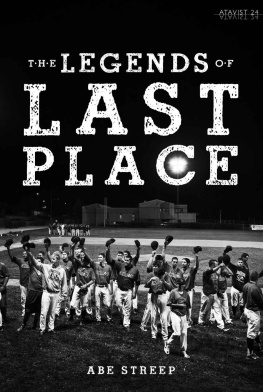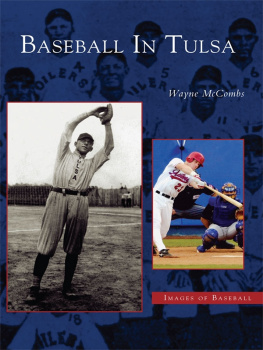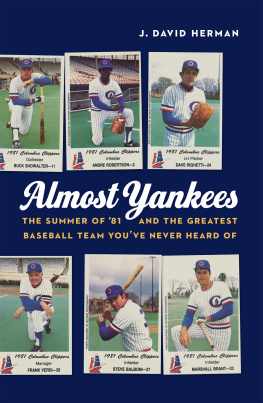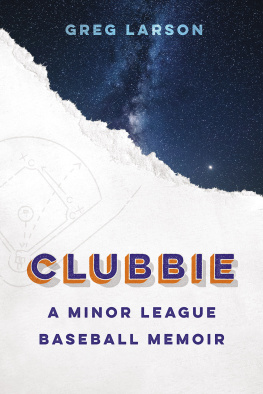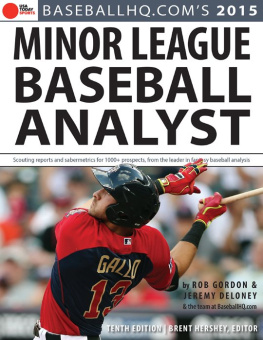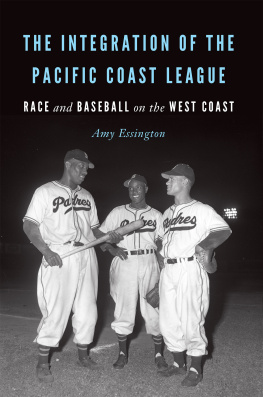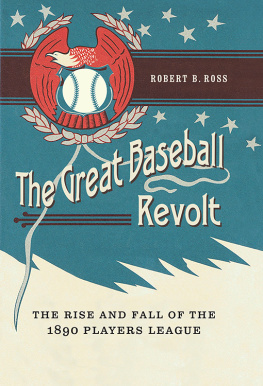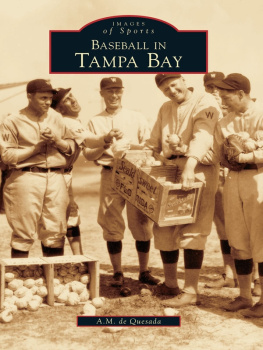Prologue
Another monsoon. The rain beats againstthe grandstand, drowning out John Fogertys growl on the aging FortMarcy Park sound system. There arent many people here yet, acouple dozen fans but few of the regularsno sign of the leftypitchers brother or the guy who carves the big wooden Virgin Marystatues. The home team sprints off the field toward us, 25 youngmen slipping over concrete in metal cleats and trying to beat thestorm. Their jerseys, made of thin red mesh, read SANTA FE. Thegrandstand is the only shelter at Fort Marcy, so all of us, playersand spectators, huddle together listening to the rain. Its thelast home game of the 2012 season. The summers final battingpractice is a washout.
The fans do not whisper when the players flop down next to us.No autographs are sought. The Santa Fe Fuego are the newestaddition to the Pecos League, a group of six independent minorleague baseball teams in Texas, Colorado, and New Mexico. Theplayers earn $54 per week and live in homestays with Santa Fefamilies. They use the same bathroom as the fans, a small concretecave. (At least there are doors on the stalls, a recentdevelopment; for most of the summer, curtains provided the onlyprivacy.) Later tonight, after the crowd has left, the players willscour the grandstand for trash, collecting stray napkins and mashedfoil containers holding the remnants of our $3 burgers. There areno grounds crews in the Pecos League.
The Fuego sip from outsize gas-station soda cups and work theirway through thick wads of chewing tobacco, waiting for the game tobegin. Though players cycle through the Pecos League withrevolving-door regularity, Ive been following the Fuego longenough nowsince the beginning of their debut seasonto know theones whove stuck around. Theres Brandon Thompson, a mountainous,hard-throwing reliever from Montana, who looks as though he shouldbe hauling some large vehicle in a strongman competition. TheresAndrew Archie Archbold, the quick center fielder, with his badgoatee that doesnt entirely link up at his bony chin. His jerseydangles off him as if from a hanger. Bill Moore, the Fuegosmanager, says that Archie weighs 120 pounds when hes got rocks inhis pocket and its raining. Its raining.
Late July is monsoon season in northern New Mexico. Stormsgather over the Sangre de Cristo Mountains in the afternoon, thendissipate or roll in and briefly batter the town, cooling the highdesert. Tonights opposition, the Roswell Invaders, a far superiorteam by every statistical measure, dont join us under thegrandstand. They huddle beneath the small roof of the visitingdugout, getting wet. Call it a home-field advantage.
The pounding eventually lets up and sun filters through theclouds, filling the sky with the kind of wild light that helps fuelSanta Fes economy, drawing second-homers and tourists who come topaint watercolors of the evenings. More fans arrive. TheInvaders emerge from the visiting dugout in jerseys the color ofantifreeze. Archie sprints to center, leading the home team ontothe field for the last time this summer.
With the exception of the center fielder, the Fuego are big,powerful men who do not embody the Platonic ideal of athleticism.They fill out their uniforms in the belly and ass. They are stronghitters, with the second-best batting average in the league.Defense is the chink in their armor. The Fuegos pitchers have, onaverage, given up nearly one run for every inning of the season;their cumulative earned-run average is more than 8.00. (A goodmajor league pitchers is around 3.00.) The fielding has been abounty of errors. July was particularly merciless. The Fuego havelost 16 of their last 23 games.
The players like to point out that many of these losses came byone run. They like to say that with a break here or there, thingsmight have turned out differently. But blind pride is a jobrequirement for athletes, and no amount of it can sway the hardfact that the Fuego have an anaconda grip on last place in thePecos League.
Independent leagues sit at the bottom of professional baseballssprawling caste system. They are essentially the minor leaguesminor leagues, consisting of players trying to reach the Single A,Double A, and Triple A farm teams affiliated with major leagueclubs. The publication Baseball America, which is theauthority on these matters, has ranked North Americas independentleagues by payroll. The Pecos didnt even pay its players enough tomake those rankings. According to a Baseball Americaofficial, the Pecos is the lowest level of professional baseballcurrently in existence.
To occupy last place in the Pecos League, then, is to lay claimto a singular title. Absolute superlatives are tossed off too oftenand easily in the sports world, but this one is not negotiable: Asof July 25, 2012, the Santa Fe Fuego are, empirically speaking, theworst professional baseball team in America.
And yet here I am. Ive spent too many hours this summer at FortMarcy. Maybe its everything the Pecos League lacks: scouts,agents, corporate funding, and the kind of dancing-bear kitsch thatfills most minor league productions. Or maybe its just nostalgia,the baseball junkies favorite opiate. Out here on the concretebleachers, I sometimes feel as though Ive been dropped into apre-steroidal epoch when the second basemen were short, therelievers were fat, and you could almost see yourself out there onthe field. Youd never go to an NFL game, watch the centaurslobotomizing one another, and think, Man, that could have been me.But the fantasy of self-projection, an old and fading tradition inbaseball, is still alive down here in the Pecos League. These arenot the automatons who have taken over the New York Yankees I grewup rooting for. On blue nights like this, I envision myself out incenter getting a jump on a ball to the gap. The marvelous openingline of one of the great baseball books, Jim Boutons BallFour, once again arrives in my head: Im 30 years old, and Ihave these dreams.
If this all sounds a little ridiculous, well, I am 30 years old,I still own my cleats from college, and Ive spent the better partof the summer eating $3 burgers. Besides, underdogs are easy tolove. Over the past three months, inside what has at times seemedlike a throwaway season in a throwaway league, I have found anextremely tough group of athletes who are willing to take realrisks and make deep sacrifices in pursuit of a quixotic goal. Theirdedication has reminded me of something essential about sports:Outside the confines of a major league stadium (or your TV screen),they are an occasionally comedic, often brutal endeavor with trulyhigh stakes. There are unexpected bursts of inspirationa90-mile-an-hour fastball, a tape-measure home runto remind youthat these guys do, in fact, have a chance to scrap their way outof the cellar and into the higher reaches of pro ball. The Fuegoplay hard, and they play hurt, and they play to win. It justusually doesnt pan out that way.
One
On November 9, 2011, Rodney Tafoya stoodin a long line at Santa Fe city hall. He was clean-shaven andwearing a sharp beige sports jacket, his black hair immaculatelysculpted with gel. His trim, five-foot-nine build was betrayed onlyby the first swellings of a middle-aged belly. He had two minutesto speak, and he had no notes, but his intentions were unambiguous.He planned to convince the city government to give him one moreshot at greatness. He felt a passion rising inside him. Time wasrunning short. He was 47 years old.
In the fall of 2010, Andrew Dunn, a former college ballplayerturned part-time real estate agent and Internet programmer, hadmanaged to scrape together enough money to start his own smallleague. Hed previously owned a team in the foundering ContinentalLeague, and when that organization folded, Dunn saw opportunity.(Lacking the major league economic backing that the moreprestigious, affiliated leagues enjoy, independent leagues areconstantly refinancing, going out of business, or joining forcesand rebooting under new names.) The Pecos Leagues inaugural 2011season was relatively successful, but following the summer two ofthe six teams folded. Dunn decided to replace them withtwo expansion teams. He wanted to put one in Santa Fe.

